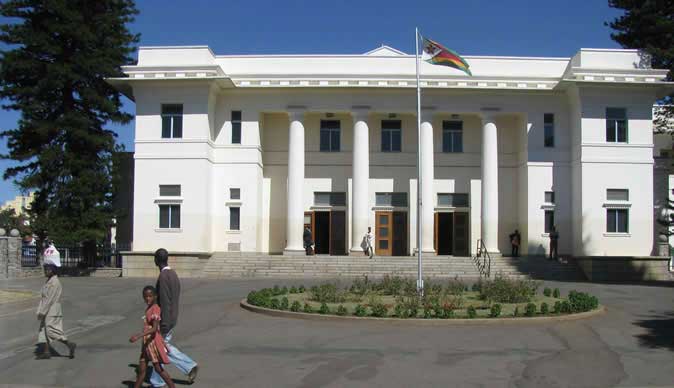
BY NQOBANI NDLOVU
Bulawayo City Council says infrastructure such as road traffic signs worth $300 000 was destroyed in last month’s deadly protests, piling more woes on the financially hamstrung local authority, a latest council report shows.
Traffic signs, kerbings and shops were destroyed during the protests triggered by hikes in the price of fuel, while the burning of tyres and use of boulders to block roads resulted in potholes.
The general municipality’s purpose committee estimated costs of damages caused by the protests to have reached $296 835.
“BCC was affected through damage to road furniture, traffic signs, traffic lights, City Hall benches, and kerbings. There was also damage to road markings while the damage to road pavement included burning of carriageway surfacing (road tarmac) and damage to surfacing resulting from the removal of kerbing.
“There was damage to schools and health facilities experienced in some areas,” the report read.
A survey in Bulawayo yesterday showed that the local authority is battling to replace the destroyed traffic signs, robots, kerbings and direction signs, owing to a biting financial squeeze.
In a related matter, the local authority has introduced temporary shop trading permits allowing businesspeople, whose properties were destroyed in the protests, to operate from caravans, and homes, among other places.
- Chamisa under fire over US$120K donation
- Mavhunga puts DeMbare into Chibuku quarterfinals
- Pension funds bet on Cabora Bassa oilfields
- Councils defy govt fire tender directive
Keep Reading
The temporary permits, ranging from six months to a year are, however, subject to traders complying with minimum health requirements applicable for goods set for trade at the said premises.
“The situation is now a humanitarian crisis since people have no shopping facilities and are not able to buy low order goods. Most people might not afford to travel to the city centre to buy daily necessities.
“This has left the shop owners with no premises to operate from and also the residents with no shops from which to buy their daily necessities,” a council report justifying the temporary permits reads in part.











